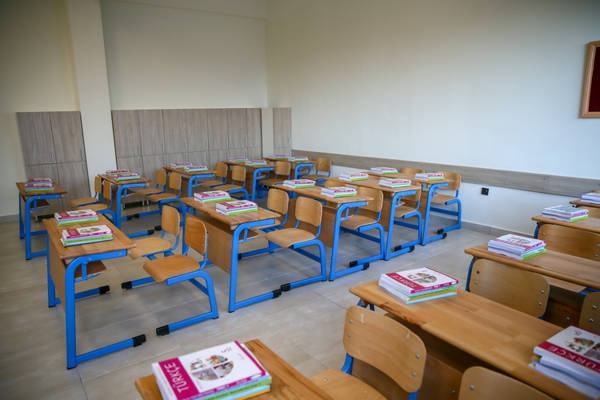Click to read the article in Turkish
Vocational high schools make the news mostly for their "contribution to the economy," agreements with business groups and "factory-like" production capacities.
Last week, Mahmut Özer, the minister of national education, told businesspeople, "Let's manage the process for training employees for you. Let's update the curriculum together."
There are about 520,000 vocational high school students in Turkey, according to the ministry. A recent report focusing on occupational accidents at vocational high schools, the FİSA Child Rights Center discusses the issue from the perspective of students and teachers.
"As you know, our country is unfortunately among the top three countries in the world in occupational accidents with deaths or serious injuries," said Tülin Yıldırım, an expert with the center. "We wanted to examine in detail whether this process is carried out by considering childrens' right to life and bodily integrity."
The report shows that children have occupational accidents and diseases just like adults, and the risks they are faced with violate the UN Convention on the Rights of the Child, she said.
"For this reason, our primary recommendation is to transform the vocational high schools, which have been educational institutions focused on training the labor force needed by the capital since their establishment, into educational institutions that take into account children's developmental attributes, rights and freedoms."
"A real working practice"
Practical training and internships for vocational high school students are mostly no different from a real working practice, said Yıldırım.
"Hence, children are employed in these places, they are not 'students' but 'workers.' So, they may be exposed to many rights violations in the workshops at school or the workplaces they work as interns."
Citing interviews with students and teachers at vocational schools, she said the average student profile is "low income and without a good level of achievement in secondary school."
"Children who are expected to both study and provide income for their families continue vocational training," she added.
"Schools are dangerous"
Examining the accounts of the interviewees and news about workplace accidents, they concluded that the working environments in schools pose dangers to students and teachers, said Yıldırım.
Physical conditions at schools are unsafe and prevention of occupational accidents is solely up to teachers, according to the report.
"Records of occupational accidents are not kept properly and accidents are not investigated," the report said, adding that the Ministry of National Education is responsible for the accidents.
Children do not want to read news about occupational accidents, said Yıldırım. "Whenever they hear about workplace accidents, they become worried that it may happen to them as well.
"And they are compelled that workplace accidents may happen because of their behaviors. For fear of being blamed, they cannot report minor accidents or near misses to teachers or the administration. This prevents them from demanding a safe working environment in their student and professional lives." (AÖ/VK)










